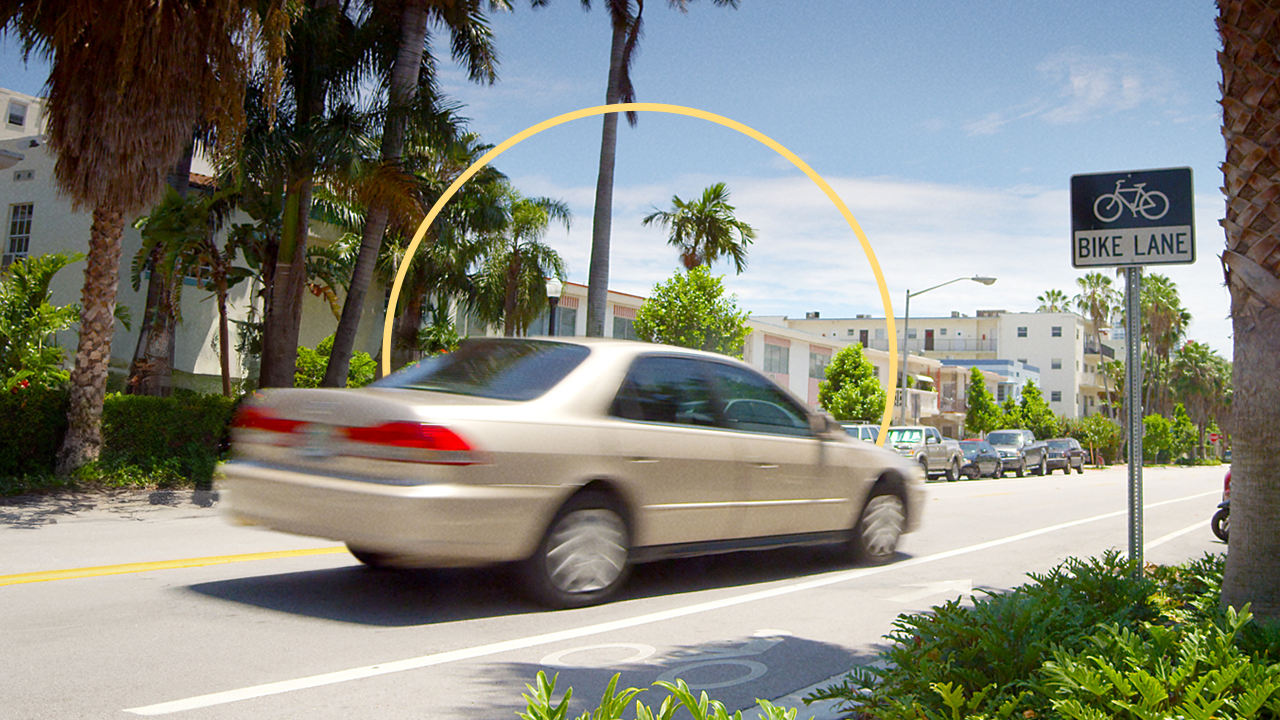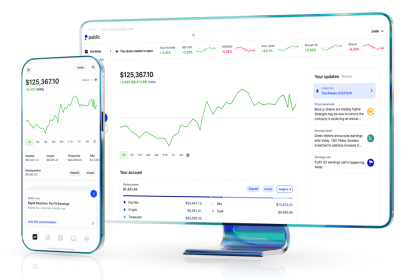FrankMirbach/Getty Images; Illustration by Issiah Davis/Bankrate
There’s a lot to see in the great state of Florida, but make sure you don’t drive too fast on your way to see the sights. Speeding ticket fines in Florida cost an average of $125, but can be as high as $250. However, a speeding ticket can continue to cost you long after you pay the fine. Having a speeding ticket on your driving record can make your auto insurance pricier when your policy renews. According to Bankrate’s analysis of average rates, a speeding ticket raises Florida car insurance costs by $677 per year.
How much does insurance go up after a speeding ticket in Florida?
Florida is already an expensive state for car insurance, and having a speeding ticket on your driving record can push your premium even higher. On average, a speeding ticket raises an insurance premium by 16 percent. That’s an average of $56 more per month on your car insurance bill.
You won’t see this increase right away. Rather, you’ll see it after your policy’s renewal date. Car insurance companies consider a variety of different factors when setting your rate, like your age, how much you drive, the kind of car you have and your driving record. When your car insurance policy renews, your insurance company typically re-evaluates those factors to give you your new rate.
| Driver profile | Average annual full coverage premium |
|---|---|
| Clean record | $4,151 |
| Adult driver, single speeding ticket | $4,829 |
| 18 years old, clean record | $10,391 |
| 18 years old, single speeding ticket | $10,722 |
You may lose discounts after a speeding ticket
A speeding ticket can make your car insurance policy more expensive in more ways than one. Driving infractions, like speeding tickets, can void any safe driving discounts that were previously on your policy. But, that doesn’t mean you can’t save. Talk to a licensed agent about other discounts you might qualify for. Or, if you’re willing to do a little more legwork, consider comparing a handful of quotes to see if you could get a better deal with another company.
How speeding tickets impacted insurance for real Florida drivers
*The quotes and citations included on this page have been verified by our editorial team and are accurate as of the posting date. Outlinked content may contain views and opinions that do not reflect the views and opinions of Bankrate.
How long does a speeding ticket stay on insurance in Florida?
In Florida, speeding tickets and other driving infractions stay on your driving record for five years. That said, a speeding ticket will usually only affect your car insurance rate for three to five years. In most cases, the more time passes, the more the financial penalty from your car insurance company will shrink.
Speeding tickets aren’t the only thing that can make your car insurance policy more expensive. Other factors, like tariffs and accident frequency in your area, can also drive car insurance costs up — even if you’ve maintained a squeaky-clean driving record. Instead of waiting around for a speeding ticket surcharge to drop off your policy, you might find a better deal if you shop around.
How to avoid an insurance increase after a speeding ticket in Florida
Just because you got a speeding ticket doesn’t mean you’re doomed to a higher insurance bill forever. Here are some steps you can take to bring your car insurance costs down after a ticket.
Try to keep the speeding ticket off your record
In Florida, you have 30 days to respond to a speeding ticket, which can give you some time to weigh your options. You may not want to pay the ticket right away, especially if you’re a first-time offender. Paying a speeding ticket is viewed as an admission of guilt; once you pay the fine, the ticket will go on your record. If it’s your first time being pulled over, consider these options to get it off your motor vehicle record:
- Go to traffic school: Qualifying drivers can choose to attend a driver improvement course to get points off their record. You still have to pay the speeding ticket fine, in addition to a $7 driving school affidavit fee.
- Contest the ticket in court: You have the option to get a lawyer and contest the ticket in court.
- Plead “no contest”: If you submit a conditional plea of “no contest” and the court accepts that plea, you won’t have to appear in court or have any points added to your driving record. But, you will be required to comply with any court impositions like driving school and paying a fine.
Shop around for competitive rates after a ticket
For the most part, car insurance companies will consider your motor vehicle record when setting your rate. But, some companies may offer more competitive rates to drivers with a speeding ticket than others. While, largely, car insurance companies all look at the same things to price your policy, they differ in how they weigh those factors. In Florida, drivers with a speeding ticket could save as much as $1,752 by shopping around for a better rate.
Drive defensively to avoid future speeding tickets
Prevention is the best cure for a speeding ticket. Maintaining a clean driving record can help you avoid a speeding ticket surcharge and possibly even earn you a good driver discount. To keep yourself accountable behind the wheel, you may also consider signing up for a telematics program. A telematics device or app monitors your driving habits in real-time, and reports your driving behavior to your insurance company — the idea being that what you pay for your policy will be more closely related to your actual driving behavior.
Or, you can take your own precautions to avoid speeding. If, for example, your car is equipped with intelligent speed assistance, you might want to get in the habit of using it.
Frequently asked questions
Methodology
Bankrate utilizes Quadrant Information Services to analyze April 2025 rates for all ZIP codes and carriers in all 50 states and Washington, D.C. Rates are weighted based on the population density in each geographic region. Quoted rates are based on a single, 40-year-old male and female driver with a clean driving record, good credit and the following full coverage limits:
- $100,000 bodily injury liability per person
- $300,000 bodily injury liability per accident
- $50,000 property damage liability per accident
- $100,000 uninsured motorist bodily injury per person
- $300,000 uninsured motorist bodily injury per accident
- $500 collision deductible
- $500 comprehensive deductible
To determine minimum coverage limits, Bankrate used minimum coverage that meets each state’s requirements. Our base profile drivers own a 2023 Toyota Camry, commute five days a week and drive 12,000 miles annually. Bundling and paperless billing discounts are applied.
These are sample rates and should only be used for comparative purposes. Your quotes will differ.
If otherwise specified, the base profile has been modified with the following driver characteristics:
Read the full article here
















